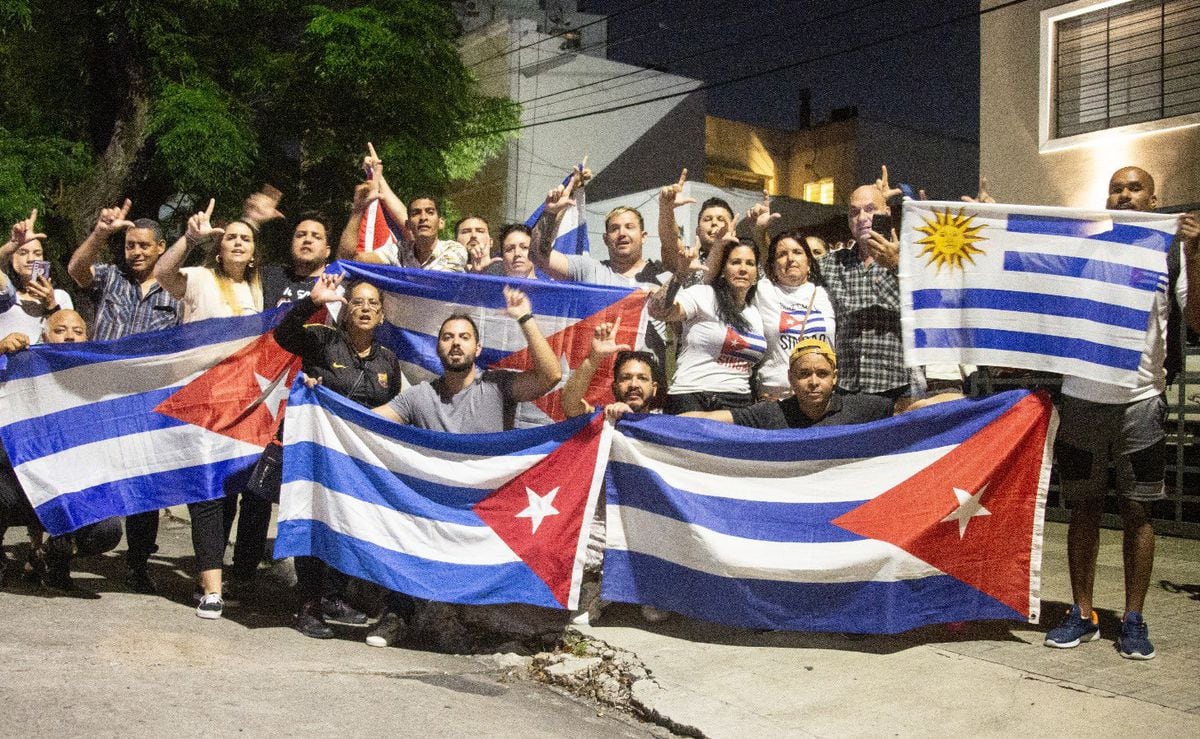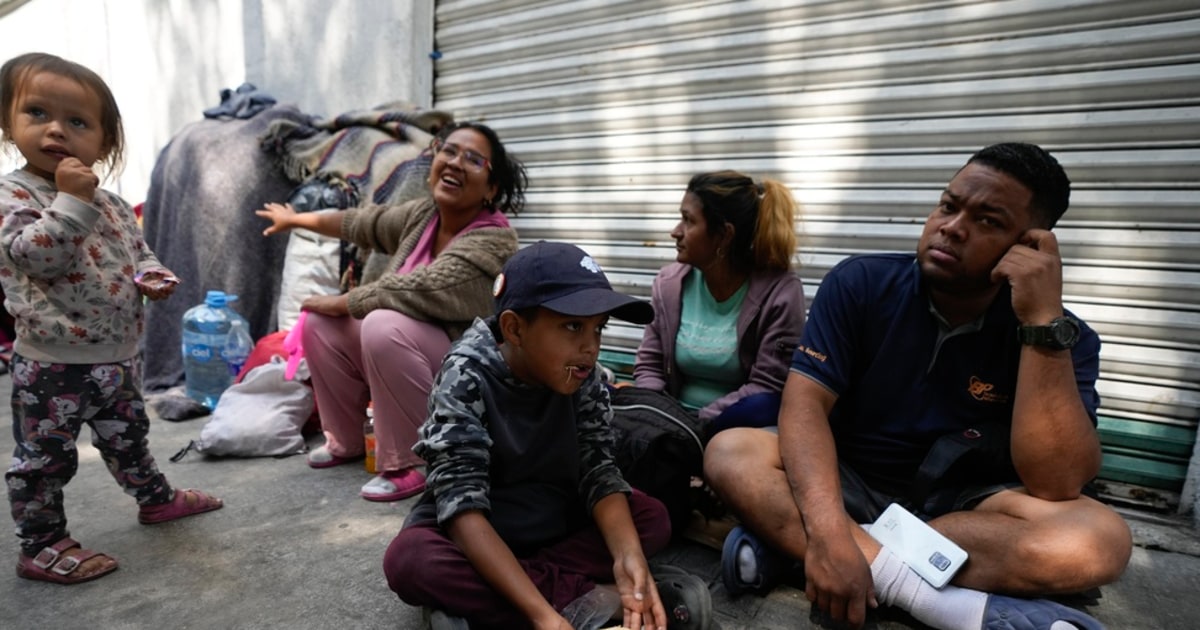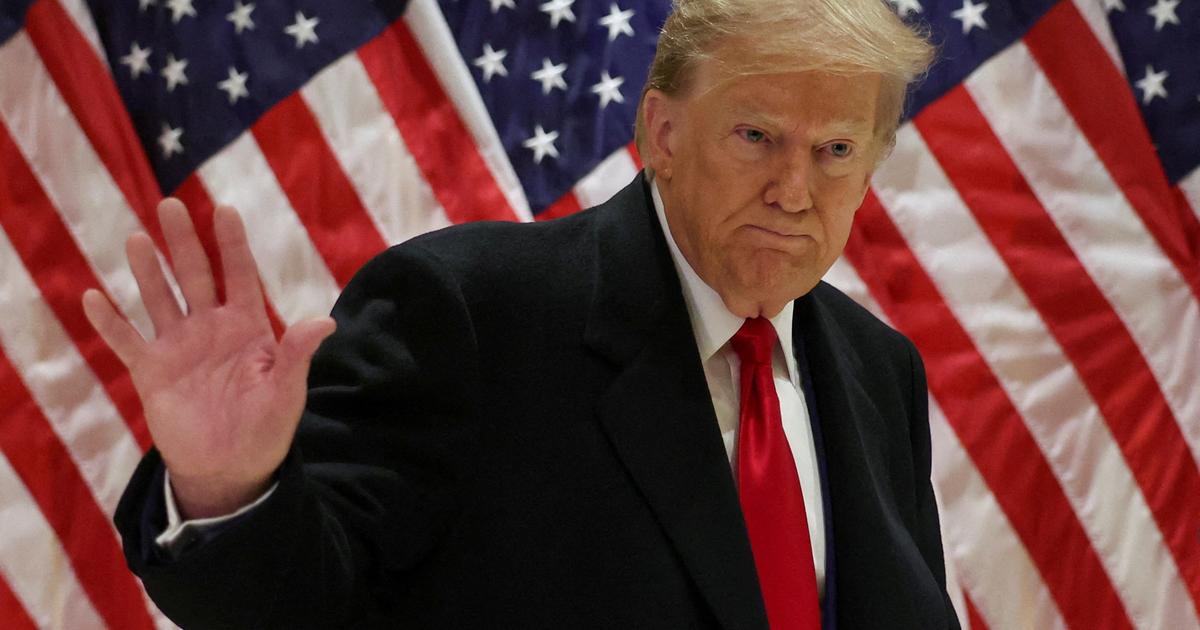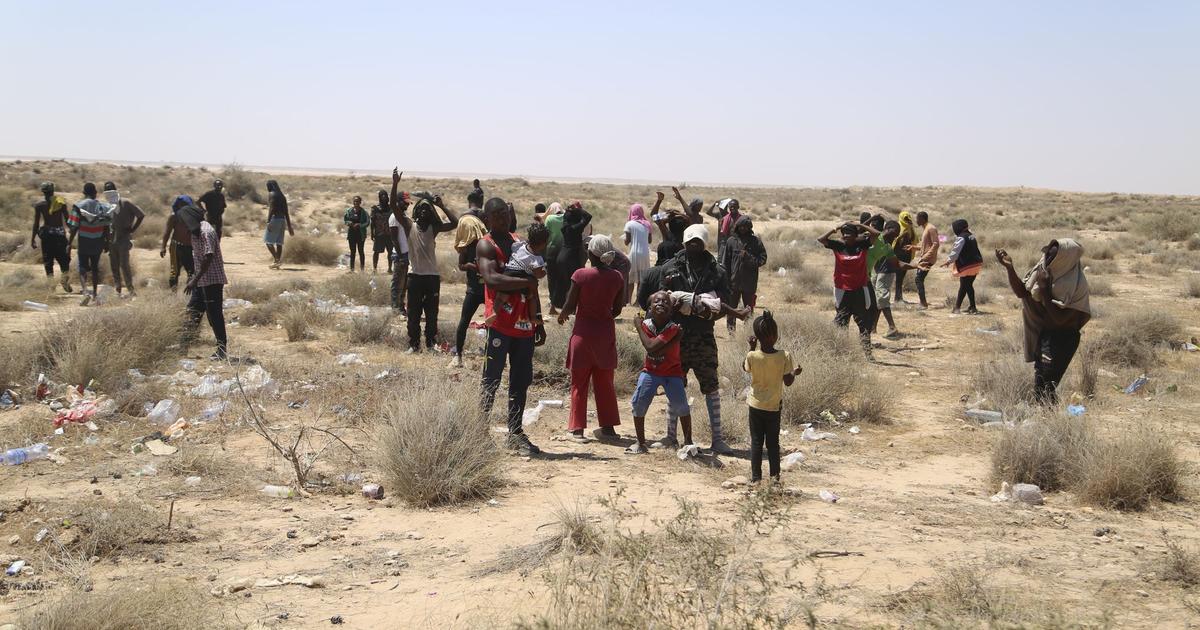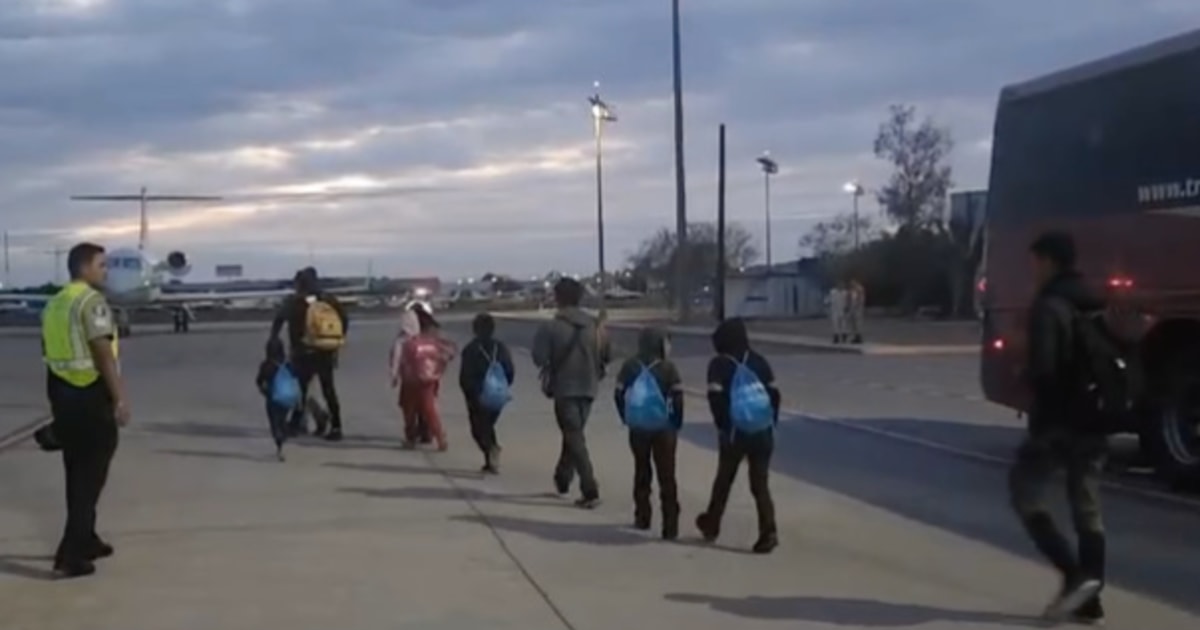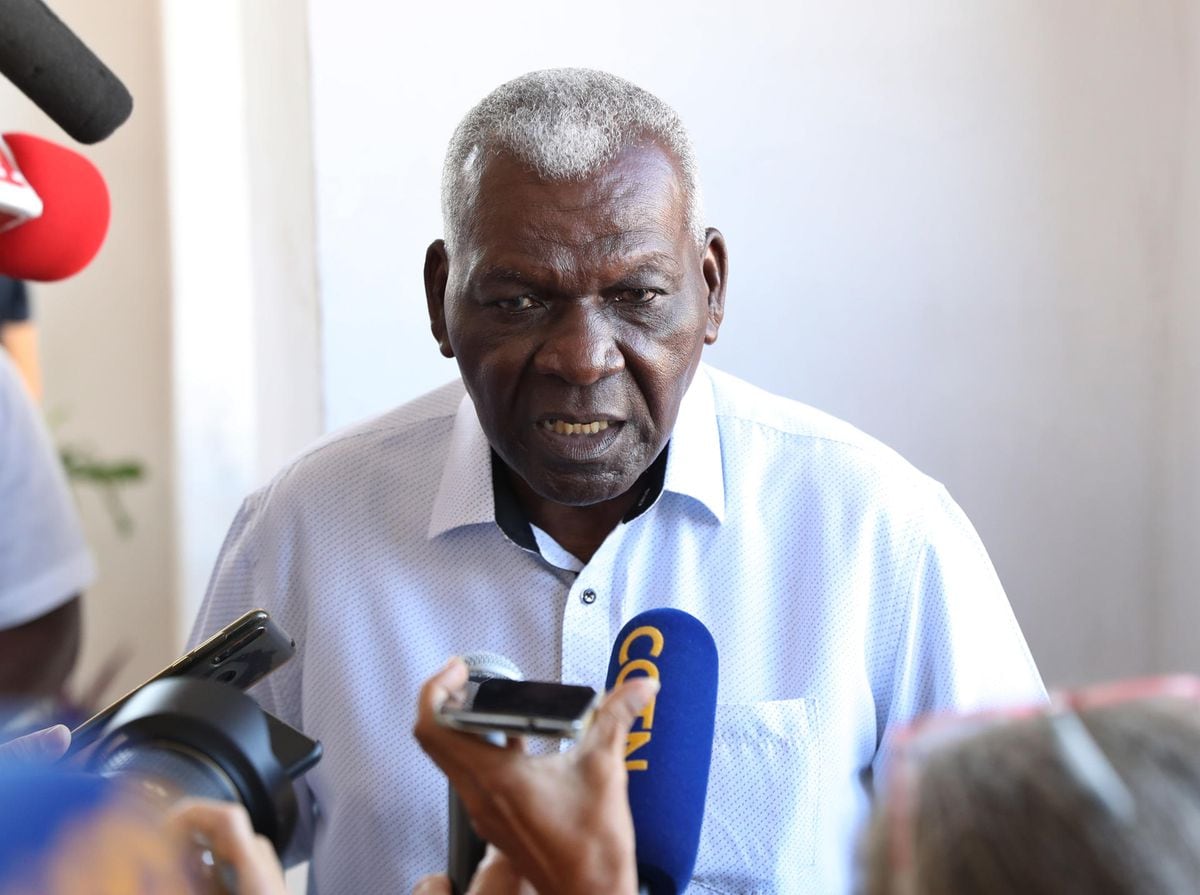A group of people line up at the Mexican consulate in Havana. Yander Zamora
The Mexican consulate in Havana and the Ministry of Foreign Affairs will implement a program with "exclusive" appointments starting this Friday to facilitate the family reunification of Cubans who work in Mexico, but who have their family in Cuba.
The measure, exclusively for people of this nationality, comes at an ideal moment in relations between the two countries and days after the visit to Mexico by Miguel Díaz-Canel, the president of Cuba.
Andrés Manuel López Obrador decorated him last weekend with the Mexican order of the Aztec Eagle, the highest decoration that can be given to a foreign Head of State, for the support that his country provided to Mexico during the Covid pandemic -19.
This measure especially appeals to Cuban doctors, who have worked in the Mexican public health system since the arrival of López Obrador to the presidency.
There are already 610 doctors distributed throughout the different states of the Republic, according to the Mexican Institute of Social Security (IMSS).
Both leaders met with some of them in Campeche, at an IMSS headquarters.
There, López Obrador told his counterpart that they will probably need more doctors from Cuba: "I hope they help us with more doctors and specialists."
The president said that he needs them to complete the staff in health centers and hospitals in Mexico before the summer.
Four days after the visit, the 43 Cuban doctors working in Michoacán will have access to accommodation, breakfast, lunch and dinner.
The text of the IMSS in which the conditions are specified, informs that the lodging will be in a double room.
The doctors will be distributed in different locations in Michoacán as part of the work agreement established between the two countries.
The news generated controversy and sparked complaints from Mexican doctors, who live and travel in much worse conditions every time they have to do work outside their place of residence.
In an interview with
EFE,
the surgeon and public health policy analyst Xavier Tello lamented the direction that the government's health policy was taking: "What Mexico has to do is inject resources, Mexican doctors should have higher salaries and a better job offer, instead of continuing to pay little and stigmatizing them because they don't want to accept low-paying jobs."
Another front in which the two economies are collaborating is the import of rajón stone for the construction of the Mayan Train.
At the end of December 2022, the shipment was waiting to be sent to Mexico at a port in Cienfuegos, the city of Cuba from which it would be sent to Yucatán, according to the Port Services Company.
Initially, it will begin with a monthly shipment of 90,000 tons of stone, a figure that should gradually increase until it reaches 200,000 tons per month.
The stone will be used as a "mattress" capable of absorbing the vibrations of the train along 500 kilometers of track.
The close relationship between López Obrador and Díaz-Canel, who have already seen each other five times since they came to power, risks straining relations with the United States, which still maintains the historic economic embargo on the island that it imposed more than 60 years.
However, this Sunday Marcelo Ebrard, the Secretary of Foreign Relations, assured that Mexico and the United States are allies, but do not have "identical interests."
After saying goodbye to the Cuban president, Ebrard said that the visit "is not an effort to annoy or get into friction."
He wants to "leave the past behind, lift the blockade" and lead a fraternal coexistence that "favors stability in America."
Relations between Mexico and its northern neighbor also showed signs of good health in early February.
The Foreign Ministry published a report on the drastic reduction in detentions of migrants from Venezuela, Haiti, Cuba and Nicaragua on the border between Mexico and the United States.
The data was presented by the Foreign Ministry as a success of the latest policy agreed between both countries to reduce the flow of migrants north of the Rio Grande.
The text points to a 97.5% reduction in Cuban arrivals and "a flow close to zero of Haitians."
Joe Biden, faced with increasing pressure from the most Republican states in the southern United States, the first recipients of this migratory pressure, decided to expand the distance visa program that he had already applied to various nationalities.
The new program aims to grant 30,000 special permits each month to migrants from Venezuela, Cuba, Haiti and Nicaragua who enter the country by plane.
Those who enter on foot, illegally crossing the border, would be sanctioned and penalized by not being able to obtain this visa later.
All with the approval of Mexico, which has seen migrant shelters saturated without providing additional support.
subscribe here
to the EL PAÍS México
newsletter
and receive all the key information on current affairs in this country

/cloudfront-eu-central-1.images.arcpublishing.com/prisa/ARABCFZJEBFLDNZZBNI24D3QTU.jpg)
